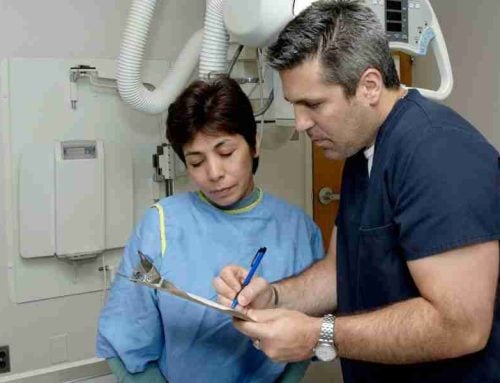Do you suffer from chronic or intermittent pain in joints like your knees and hips? Are you looking for an orthopedic surgeon in Hawaii?
If so, then you are probably looking for some arthritis specialist care that will take that pain away while also treating the underlying problem that is causing it. But if you’re in the position, you might even be confused about exactly what kind of specialist you should be seeing.
So, should you see an orthopedic surgeon or a rheumatologist? Well, to answer this question, you really need to break it down into a few others.
What is the difference between them? Does one specialize in one thing and is the other one specialized in another? Are there certain types of pain that you should see one over the other for?
These are all excellent questions, and in this article, we will answer all of them. So, let’s get straight to it and take the first step towards solving your pain issues.
The Breakdown: Orthopedic Surgeon or Rheumatologist?
Here is a quick reference list for the types of conditions orthopedic surgeons and rheumatologists are best at treating.
Orthopedic surgeons deal with physical ailments. So, you should see an orthopedic surgeon or orthopedist when you:
- Have pain that has developed from a physical injury
- Have pain experienced from bearing weight (such as knee pain when squatting)
- Have osteoarthritis (also known as wear and tear arthritis)
- Have joint pain that has not gone away after receiving other treatment
- Require any joint replacement, particularly hips and knees
By contrast, rheumatologists generally deal with systemic inflammatory problems. These types of issues usually fall under the banner of rheumatoid arthritis. You should see a rheumatologist if you:
- Have joint or muscle pain that is accompanied by fatigue, fever, chest pain, rashes, headaches, weight loss
- Have pain that has arisen without any prior history of injury
- Have pain throughout multiple joints
In-Depth: Orthopedics vs. Rheumatology
Let’s start with some definitions of orthopedics and rheumatology.
Definition of Orthopedics
Orthopedics is the branch of medicine that deals with the musculoskeletal system. But what is the musculoskeletal system?
As the name suggests, the musculoskeletal system comprises two aspects: your muscles and your skeleton (or bones). However, your bones and muscles are connected by tendons and ligaments, which are also part of the musculoskeletal system.
Every bone and muscle in your body is connected with one another. Importantly, this means that effects experienced in one region of the body can be caused by something occurring elsewhere. Usually, the cause and effect are located quite close to one another, but this is not always the case.
For example, a patient may experience pain running down their leg, but this may be because they have a pinched nerve in their back. Likewise, knee pain may be being caused by arthritis of the hip.
In sum, orthopedics is all about understanding exactly how the bones and muscles of the human body fit together. An orthopedist or orthopedic surgeon is the specialist who can diagnose specific problems located within the system of bones and muscles and surgically repair them if necessary.
Definition of Rheumatology
Rheumatology relates to the treatment of all rheumatic diseases. So what are rheumatic diseases?
Rheumatic diseases are those diseases that affect the musculoskeletal system. They can have a variety of underlying causes, and they may be accompanied by a range of symptoms.
Here is a list of common rheumatic diseases:
- Rheumatoid arthritis
- Lupus
- Scleroderma
- Sjogren’s syndrome
- Ankylosing spondylitis
- Psoriatic arthritis
- Juvenile idiopathic arthritis
Just like orthopedics, the main focus of treatment is the musculoskeletal system. Consequently, there is quite a bit of crossover between the two fields.
What Is the Difference Between Orthopedics and Rheumatology?
If there is a significant crossover between the fields, what is the actual difference between them?
First of all, it’s important to note that, for some conditions, there is not a definite difference between them. For example, suppose you experience arthritis in a particular joint. In that case, both an orthopedics expert and a rheumatologist will likely offer you similar treatment.
But there are differences.
Rheumatology
The significant difference between the two fields is the causes of the pain that patients are experiencing. In particular, rheumatology deals with types of pain that are being caused by some form of disease.
Typically, a rheumatologist deals with different types of inflammatory arthritis.
Orthopedics
The main causes of conditions that orthopedics deals with are those that relate directly to the musculoskeletal system. This obviously includes common injuries, such as:
- Broken bones
- Fractures
- Torn ligaments
- Meniscus tears in the knee
- Damaged cartilage
- Torn or strained muscles
These are not the only causes of conditions that an orthopedic surgeon may deal with, however. Some other conditions that an orthopedist will deal with include:
- Osteoarthritis
- Post-traumatic arthritis
- Avascular necrosis of the hip
- Developmental hip dysplasia
- Perthes disease
- Slipped capital femoral epiphysis (SCFE)
An orthopedic surgeon may also be required to assist with a rheumatic disease if the condition has caused the patient to require surgery. So, while the different causes of pain that rheumatologists and orthopedic surgeons treat are sometimes different, they often overlap significantly.
However, what is very different between the fields of orthopedics and rheumatology is the types of treatment they offer.
What Is the Difference Between Orthopedic and Rheumatological Treatment?
Identifying the different causes of musculoskeletal pain has a big impact on how patients should be treated. This is where the major difference between orthopedics and rheumatology comes in. Let’s look at the differences in treatment between each field.
Orthopedics
An orthopedic surgeon will treat musculoskeletal conditions directly. Often, this will be some form of surgical treatment, but not always. Common surgeries performed by an orthopedic surgeon will include:
- Anterior Cruciate Ligament (ACL) reconstruction
- Hip replacements
- Knee replacements
- Robotic hip and knee surgery
But an orthopedist may also provide non-surgical treatment. This type of treatment may include:
- Physical therapy
- Injections
- Medications
Sometimes, an orthopedic surgeon will offer an initial consultation and decide that another specialist should provide the best or first treatment.
For example, an orthopedic surgeon may refer you to a physical therapist to assist with pain management. Likewise, they may direct you to a rheumatologist to treat suspected underlying disease or a chiropractor for alternative medicine.
If you are looking for a chiropractor in Hawaii, a rheumatologist in Hawaii, or a physical therapist in Hawaii, you can book an initial consultation for a referral.
Rheumatology
The treatments for rheumatology, by contrast, will usually be directed at counteracting an underlying disease in the body. This treatment will usually begin with a series of diagnostic tests designed to identify the underlying condition.
This will usually consist of blood tests. There are a large variety of rheumatology blood tests that can be used to identify various diseases. There are also blood tests that can identify inflammatory markers. These tests will often indicate the existence of some form of rheumatoid arthritis.
If rheumatoid arthritis is diagnosed, the rheumatologist will often prescribe medications known as DMARDs. These have been significantly improved in recent years, and they can provide significant relief to some patients without the need for surgery.
Sometimes, a rheumatologist will refer a patient to an orthopedic surgeon for surgical treatment. If you have a reference from a rheumatologist and are looking for an orthopedic surgeon in Hawaii, don’t hesitate to get in touch.
What Do I Need? An Orthopedic Surgeon or a Rheumatologist?
Now it’s time to answer the big question. But how do you decide?
Well, the first step towards deciding the rheumatologist vs. orthopedic surgeon debate is to identify the type of pain you have. Of course, this is just a very rough diagnosis, and you are going to need expert help to work out what the problem is. But it’s an excellent place to start so that you can find the right expert help.
Can You Identify a Cause of the Pain?
The first question is whether you know of a specific reason that is causing your joint pain. Some common causes of joint pain include:
- Bumps and bruises
- A sports injury (even a muscular one that doesn’t seem to have much to do with the joint in question)
- An operation from which you are still recovering
- A previous injury that is flaring up again after a long absence
If you believe your pain is being caused by any of these things, a good place to start is with an orthopedic surgeon. This is because your pain is probably being caused by some kind of structural issue, such as a torn ligament or a fractured bone.
An orthopedic surgeon will be able to perform initial diagnostic tests, such as checking your range of movement, identifying which movements cause pain, identifying surrounding muscle tension, and locating the exact area of pain.
If you are searching for an orthopedic surgeon in Hawaii, Dr. Paul Norio Morton will be able to perform all of these tests and also refer you for further diagnostics, such as X-rays and CT scans.
What Other Symptoms Do You Have?
When deciding between an orthopedic surgeon and a rheumatologist, you should also consider what other symptoms you are experiencing.
Rheumatoid diseases are usually accompanied by secondary symptoms in addition to your musculoskeletal pain. You should audit your body and consider whether any of the following are present:
- Fever
- Unintended weight loss
- Fatigue
- Whole-body stiffness
- Areas of the body being overly warm
- Skin conditions
- Swelling in areas without injury
These symptoms may indicate that your musculoskeletal pain is related to a further underlying condition, such as rheumatoid disease.
Making the Decision
At the end of the day, both orthopedic surgeons and rheumatologists have a general understanding of the types of things that may be causing you pain. So, if you go to see either one, they will likely have a good idea of whether your condition falls into their area of expertise, or whether it’s appropriate to refer you on to another specialist.
Dr. Paul Norio Morton has the expertise to perform an initial diagnosis of your condition. But he also has a wide range of medical contacts in Hawaii, if it turns out that you require some other form of expertise.
So, if you do end up needing rheumatology, physical therapy, or pain management in Hawaii, he will be able to refer you.
Early Intervention Is Essential for Strong Recovery
Hopefully, you now have a good idea of the primary differences between orthopedics and rheumatology, and also when you should be seeking the treatment of an orthopedic surgeon or a rheumatologist.
But the last thing to press home is that early intervention is absolutely critical to achieving the best possible outcomes, no matter what the underlying cause of your pain is. Because of the interconnectedness of the human body, damage suffered in one area can often lead to damage in others.
Also, even minor conditions can worsen, causing unnecessary wear and tear on the affected bones and muscles. So, by diagnosing the problem early and getting it treated, you can save yourself the trouble of needing more intensive treatment later on.
So, if you are experiencing pain and want to get treatment from an orthopedic surgeon in Hawaii, why not get in touch with us to set up a consultation today?





